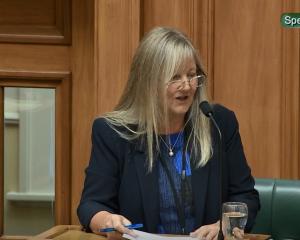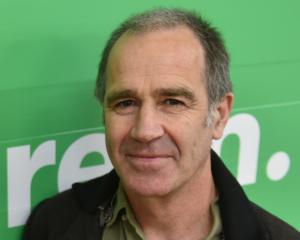When Julia Gillard became the first ''foreign'' leader to address the New Zealand Parliament she delivered one of the finest speeches ever given in the House.
''Australia has many alliances and friendships around the world ... but New Zealand alone is family.''
There wasn't a throat left un-swallowedShe told the story of the ''imperishable'' bonds in this family, traversing as she did the spirit of the Anzacs, bush fires, Pike River, CER and Afghanistan.
A snippet from her finale, as it was set out:
This is our time.
A time for optimism.
Because our best days lie ahead.
That is why I come here on this journey of hope.
To celebrate all that is best in us.
And bring closer the future that awaits our grasp.
Drawing together.
Reforming.
Reaching out to the world.
And achieving more together than we ever could alone.
It sounded magnificent in February 2011 but it sounds hollow now: Australia, our fair-weather family.
State discrimination imposed by John Howard's government has been upheld by successive leaders, including Ms Gillard.
It means working Kiwis are paying taxes alongside Australian residents with little chance of gaining residency or citizenship and no access to many services they fund, including the national disability insurance scheme and university fees.
I covered the meeting in Sydney between Mr Howard and Helen Clark and essentially, New Zealand was given a mafia option, one it couldn't refuse - agree to the restrictions or give up the free travel and entitlement to work which New Zealanders, wrongly, had come to view as a right.
The last Labor Government agreed to review some of the restrictions but in the almost certain knowledge it would not be re-elected to see them through.
The current issue of 200 or so Kiwi-born criminals - many of them Australian-raised - being held in immigration detention centres pending possible deportation is not an issue of discrimination but of fairness which was brought to a head by the suicide in custody of a young man who left New Zealand at the age of 4 and faced deportation back here.
But in this case, all non-Australian criminals who have served more than a year are treated the same in rules passed under the Migration Amendment (character and General Visa Cancellation) Bill passed last November.
Prime Minister John Key raised the issue with Australian Foreign Minister Julie Bishop at the United Nations in New York but it was fair to say that Vladimir Putin's speech for unity over Syria on Tuesday and unilateral air strikes in Syria on Thursday were a major distraction.
If Julie Bishop was not left in any doubt by Mr Key and Foreign Minister Murray McCully this week about the depth of feeling in New Zealand, the Australian High Commission's cables back to Canberra will be conveying the extraordinary criticism of the situation by all National's support partners.
Peter Dunne suggested not only that New Zealand's foreign policy had become ''too craven'', he said New Zealand had become ''pathologically scared'' of criticising China.
Defence Minister Gerry Brownlee proved that when gave a speech in Beijing this week, although he chose to go with the Confucius tone rather than lecture.
''All big countries are made much bigger, in every sense of the word, by recognising their strengths and confidently sharing and defusing concerns of smaller countries.''
It was a polite message about bullying by China in the South China Sea but it could be apt for Australia.
The Australian law affecting prisoners was shepherded through Parliament by Australia's second most powerful politician,
new treasurer Scott Morrison. It was part of the suite of measures to give sweeping and swift powers to the minister in response to security concerns, in the wake of jihadists and lone-wolf attacks.
He can cancel a visa if he thinks someone is lying about who they are. He can override appeal decisions.
Laws to allow New Zealand authorities to respond quickly to the changing security risks were passed at the same time.
Previously in Australia, non-citizen prisoners who had served two years could have their visa cancelled by the Immigration Minister.
Now their visas are cancelled automatically after serving one year but that can be revoked by the minister.
The onus has been reversed.
If the cancellation is not revoked by the minister or his delegate, that decision can be reviewed.
They are held in detention until their status is resolved.
That is the only good news for those being held - that there is ministerial discretion to revoke their cancelled visa and if they are being held, at least they haven't been deported.
The Australian Greens argued against the Bill but the Labor Opposition supported it and that will make a law change difficult.
The one thing the Liberals won't ever do is give Labor a sliver of space to out-do them on security or law and order.
The New Zealand Government needs to win some concessions on at least one of these two issues.
The only times we are certain of meeting in the bonds of love are when we are fighting together abroad, or at least training abroad, as we are in Iraq.
So much is said about the shared values of friendship, decency and respect between the two countries it will continue to ring hollow if not matched by deeds.
The song goes ''Advance Australia Fair'', not unfair, doesn't it?
Or are we family for some purposes and foreigners for others?
• Audrey Young is The New Zealand Herald political editor












